Life
Sign up for our newsletter
We summarize the week's scientific breakthroughs every Thursday.
-
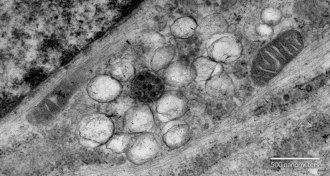 Life
LifeDrug candidate takes new aim at MERS
An experimental drug that shuts down construction of virus-making factories could become a new weapon against MERS.
By Meghan Rosen -

-
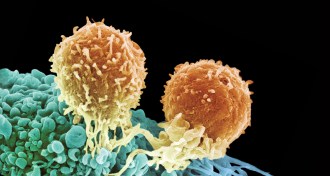 Life
LifeDesigner T cells emerge as weapons against disease
Decades of attempts to boost the immune system’s ability to fight disease are finally starting to pay off. Reprogrammed T cells serve as new weapons against cancer and autoimmune diseases.
By Susan Gaidos -
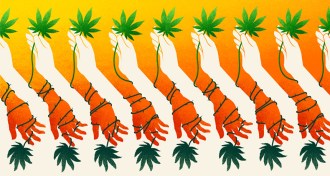 Neuroscience
NeuroscienceLegalization trend forces review of marijuana’s dangers
Marijuana legalization advocates tout pot’s medicinal benefits and low addictiveness, while critics point to its neurological dangers. Research shows that the reality is somewhere in the middle.
-
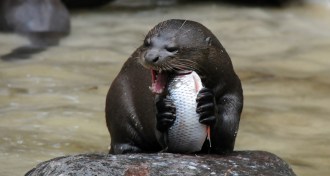 Animals
AnimalsOtters provide a lesson about the effects of dams
A dam created a new habitat, but that habitat’s lower quality kept otter density low.
-
 Cosmology
Cosmology2014 Kavli Prize winners announced
Cosmic inflation, nanoscale imaging and a better understanding of memory earn million-dollar honors with the Kavli Prize.
-
 Life
LifePolio could return after near eradication
Polio was considered eliminated in the United States by 1979, but since then vaccination rates have slipped, prompting concerns about reemergence.
-
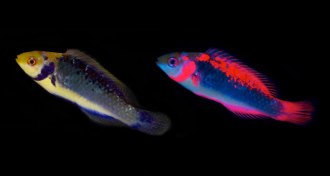 Animals
AnimalsReef fish get riled when intruders glow red
A male fairy wrasse gets feisty when he can see a rival’s colorful fluorescent patches.
By Susan Milius -
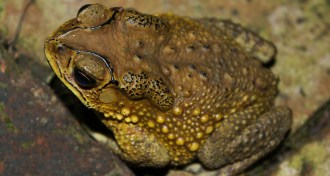 Animals
AnimalsToxic toad infiltrates Madagascar
Asian common toads may have hopped a ride to Madagascar and could pose an ecological risk to the island's native species.
-
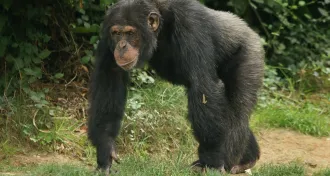 Life
LifeHuman use energy in brains, muscles differently than chimps do
The way our brains and muscles use energy is strikingly distinct compared with chimpanzees' metabolism in these tissues, a finding that may explain the major differences between the two species.
-
 Science & Society
Science & SocietyStem cell scientist reportedly agrees to retract controversial paper
Japanese stem cell scientist Haruko Obokata has agreed to retract one of the Jan. 30 Nature papers on STAP cells.
-
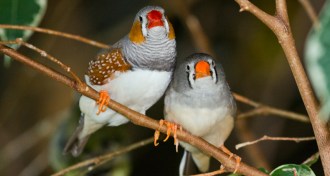 Animals
AnimalsZebra finches can detect variations in human speech
When humans vary the pitch or rhythm of their speech, zebra finches perceive the changes, suggesting that the ability to detect such variations is not linked to language.